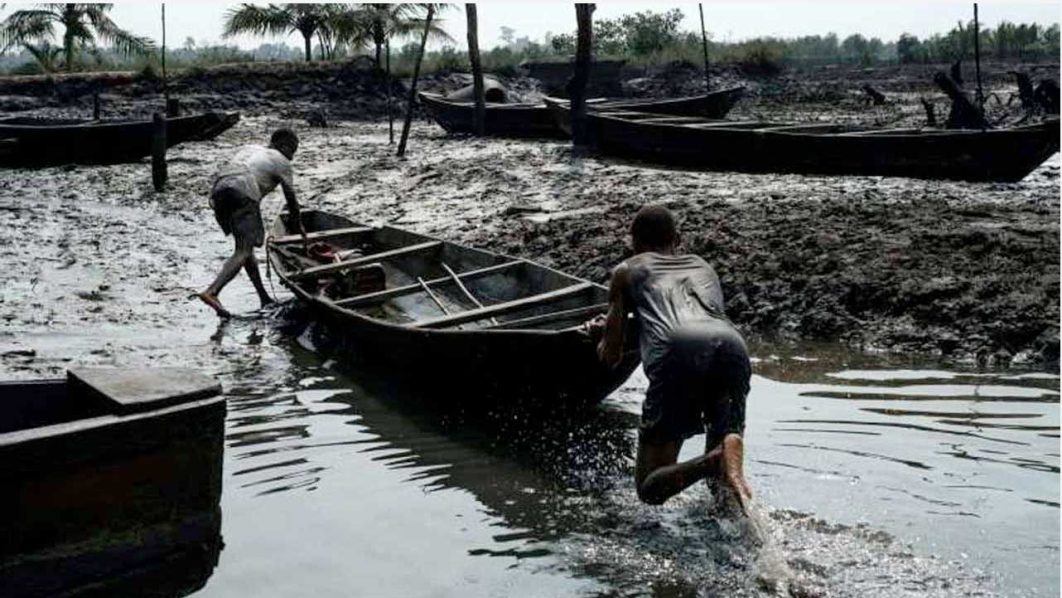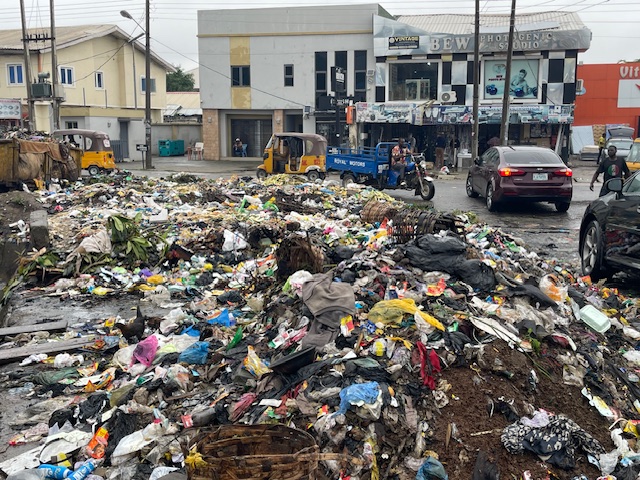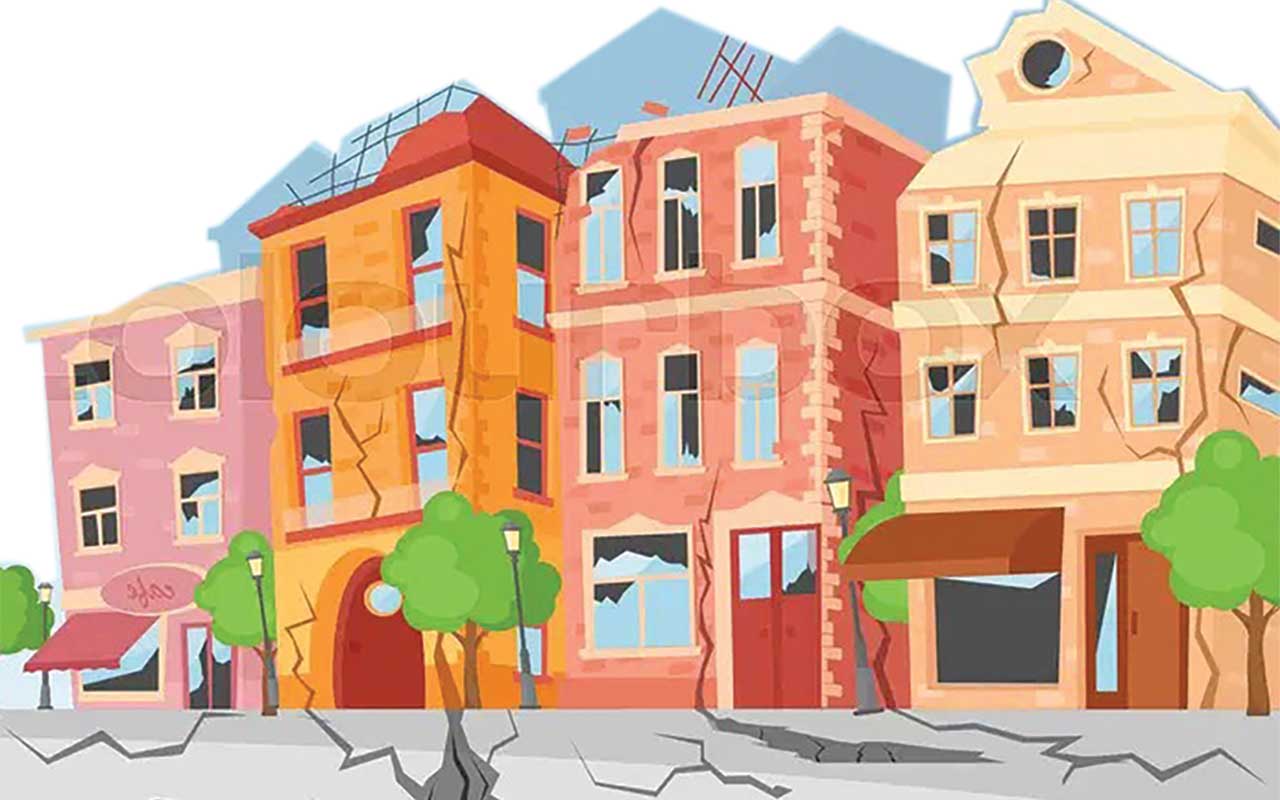
As the administration of President Muhammadu Buhari winds down in four months, some Nigerians to whom the government made promises are getting disillusioned as it appears their hopes would be dashed. One group that is counting, as each day flies past, is the Ogoni people of Rivers State, who had been promised cleanup of their polluted environment.
A visit to the flag-off site for the exercise at Patrick Waterside, Bodo, last week, showed the environment had deteriorated further. Ironically, the plaque unveiled by Vice President Yemi Osinbajo, who represented Buhari on that June 2, 2016 ceremony, had fallen to the ground.
The cleanup was meant to begin from less impacted areas (upland) and, thereafter, proceed to heavily impacted areas (coastal), where Bodo is located. (Bodo has a separate mediation initiative being handled by the polluter, Shell Development Petroleum Company.) The project contractor, however, has left the site, following misunderstanding with the community. Thus, nothing is currently happening at Bodo, as far as the cleanup is concerned.
A visit to about 10 remediation sites being handled by Hydrocarbon Pollution Remediation Project (HYPREP) around Korokro in Tai, Ogali in Eleme, four locations in Gokana, and others in Khana, revealed that though some work had been done, but from a layman’s viewpoint, there is no difference between a remediated (certified) site and others yet to be certified clean. The reporter sighted from a distance what was on ground, as security personnel did not permit entrance to the main sites.
During the visit, aided by a community-based monitoring team in Gokana, remediation was said to have been carried out on some locations. Locals and some independent monitors, however, claimed the job, so far, could not be thoroughly certified clean.
At some places, fragments of tarpaulin used to form a wall to prevent polluted water from entering the remediated sites were still visible. Though HYPREP claimed active remediation has been done in 26 lots, certification of the sites is still subject to further examination.
In HYPREP’s report of October 2022, obtained by The Guardian, the agency’s spokesman, Kpobari Nafo, said active remediation and the National Oil Spill and Detection Regulatory Agency (NOSDRA) certification processes have been completed successfully for 26 lots out of 50 lots in the Phase 1, Batch 1 and 2.
The report noted that 22 other lots are at different stages of NOSDRA closeout and certification, while two lots still have outstanding remediation. The report states: “The remediation work is at 78 per cent completion (Plate 2.2). Excavation has been completed on all sections of the impacted area. Treatment has been undertaken on the impacted soils excavated from a section of the impacted area and have been established to be below the Risk Based Corrective Action (RBCA) level of 1,000mg/kg, following the analytical results of QA/QC samples taken. Currently, backfilling of that set of the treated soils is ongoing, while treatment of the remainder of the impacted soils (Plate 2.1-2.4) is in progress.”
Further findings revealed that funding has not been a challenge with implementation of the project. The Guardian gathered from the Board of Trustees that adequate funding was made available.
However, speaking on the development, an environmentalist and the Executive Director of Youths and Environmental Advocacy Centre (YEAC-Nigeria), Fyneface Dumnamene Fyneface, who has been observing and advocating on the Ogoni Cleanup project since inception, said HYPREP has tried what seems as its best but that “best” is not enough, hence he described it as a failure in general.
He said: “It is a failure in the sense that United Nations Environment Programme (UNEP), in the August 4, 2011 assessment report on Ogoni recommended that $1billion be spent for the first five years of the project and listed what the funds should be used for.
“The funds were released by joint venture partners to the tune of about $360 million, with readiness of the JV Partners to release more on request. But HYPREP has not been able to use the money and carry out the project implementation satisfactorily in seven years.”
Fynface regretted that another manifestation of HYPREP’s failure is that the eight items listed as emergency measures to be implemented first, like water, health audit, among others, have not been holistically addressed till date.
He added: “ I further observed that the project is moving at a snail speed, despite the availability of funds and many directives from President Buhari for the project to be fast-tracked.”
The HYPREP Project Coordinator, Dr. Ferdinand Giadom, when he spoke on Point Blank, a radio programme on Super FM 93.3, Port Harcourt, Rivers State, Saturday, December 31, 2022, said, the agency has spent about $90 million on the project from inception (flag off) in 2016 till date.
But Fynface said, going by Giadom’s declaration, if HYPREP spent $90 million in seven years, it implies that it would take HYPREP, at least, 63 years more to exhaust the $1 billion it was expected to spend in five years.
He feared that the Ogoni cleanup, which UNEP recommended should be completed between 25 and 30 years, would now take HYPREP about 70 years, with restoration of the environment completed by 2086.
The environmentalist called on HYPREP to do more to fast track the project and restore the Ogoni environment, so that fishing and farming can thrive again. Also, a member of the Board of Trustees of HYPREP, Emmanuel Deeyah, blamed the slow pace of the cleanup on frequent changing of environment ministers and community disagreements.
He said: “I say it is a political problem because whatever the Project Coordinator’s office does has to get the endorsement of the Minister of Environment. And within this period, there have been three Ministers of Environment. For example, the minister that inaugurated the board, Muhammad Mahmood Abubakar, was moved to the Ministry of Agriculture. He was able to award some water contracts before he was removed.
The other minister, Sharon Ikeazor, was at the point of doing something before she was moved out of the ministry. And the current minister, Mohammed Hassan Abdullahi, has just awarded some contracts for remediation, security and electricity.
“The water project is stalled because some Ogoni people went to court and that is impeding the procurement process. You see that a combination of political and community challenges are not allowing the project to move as it should. Due to these challenges, we’re unable to interrogate the process, like when contract awards letters were issued and when contractors were mobilized to site, and time for completion.”
Deeyah, however, lauded the power project being implemented by HYPREP. He said: “The major project HYPREP has done is the power project. It is a big one. I believe that it is going to be one of our surest gains of the exercise, because it is an irreversible process, as the money has been made available. And this is where we need to commend President Buhari; he has not allowed politics to affect what he is doing. He has allowed the process of the cleanup to go on without interference.”
On his assessment on the acclaimed remediated sites by HYPREP, Deeyah said: “They just awarded some contracts. Sometime ago, we went around the sites to look at what is being done and what we discovered was shocking, in the sense that remediation is an absolute thing. It is either the thing is being done or it is not done. We found out that a lot of things that were done previously were not done well.”
But he expressed confidence that the current HYPREP Project Coordinator, Giadom, will deliver tangible results, since he had worked with the United Nations and has also been Project Advisor to UNEP.
He said: “What is going on at the moment is that a lot of remediation has been done in the bushes and in the forests. We need to move into areas where people are living and we expect that before he does that, there will be proper review of the process, so that whatever is said to have been done will be done properly.”
Deeyah also hoped that whoever succeeds Buhari would avoid the political game being played in the Niger Delta Development Commission (NDDC), which has robbed the region of vital developments.
On his part, the Executive Director of Environmental Rights Action/Friends of the Earth, Nigeria, Chima Williams, acknowledged that his visits to the sites showed that work is ongoing. It is, however, not accelerating at the speed people expected and the optimism expressed during the flag off.
The environmentalist, who is the African Environmental Ambassador for 2022 to 2023, said: “The things we thought should be in place are not there. Water supply, one of the emergency measures recommended, is not available to the people. By now, one would have wished that all the communities in Ogoni land would have had some kind of potable drinking water but we don’t see them.
“Also, the human livelihood empowerment is not there. Though there are some remedial work ongoing at the sites, it has not covered all the impacted areas.” Williams said the slow pace of work and the general situation of the Niger Delta underscores the significance of the 2023 elections, noting: “This is why the next government the people get is very important because it is in our hands to make bold statements with the political transition that is going on now. Soon, there will be an election. So, what is the position of the Niger Delta people and the political parties regarding our environment?
“This is important because if you elect a government that is insensitive to the Niger Delta issues, we go back to square zero. Don’t forget that UNEP’s report was not released under this current administration. It was released in 2011 but it was ignored. So, it is important to say Buhari took the right step. But something can be done within the remaining four months.
“I call on the administration to know that there is still a lot that can be done in the cleanup of Ogoni land and the plan to cleanup the entire Niger Delta. It is just the political will that is absent.”
For the Pan-Niger Delta Forum (PANDEF), the Ogoni cleanup is one of its 16-point demands presented to Buhari on November 1, 2016. Spokesman of the group, Ken Robinson, said the Ogoni cleanup was supposed to be a precursor to the cleanup of all impacted communities in the Niger Delta, which have been devastated by over 60 years of petroleum extraction activities. He, therefore, called for more seriousness in execution of the project.
Worried by the slow pace of the exercise, a humanitarian and environmental expert in Bodo city, Mr. Damian Gbogbara, who said he has visited about 17 cleanup sites, expressed dissatisfaction.
He said: “I have been to 17 different sites and during the visits, we noticed that there was no difference between where was certified and where has not been certified.” He urged the government and the agency to step up efforts and use the remaining months to achieve some progress.
A fisherman in Bodo, Mr. Livinus Bira, who was seen fishing in oily polluted water, said: “Nobody is sincere in Nigeria. Everyone is after what he can gain from the system.” He said he has no confidence in the cleanup, adding that he hopes only in God for survival.
Susan Vikua, a fish seller at Bodo beach (water side), said: “After the so-called flag off on June 2 2016, everybody just disappeared. As you can see (pointing at the plaque unveiled by Osinbajo), the beautiful structure used to display the flag off has collapsed a long time ago because nobody cares.”






